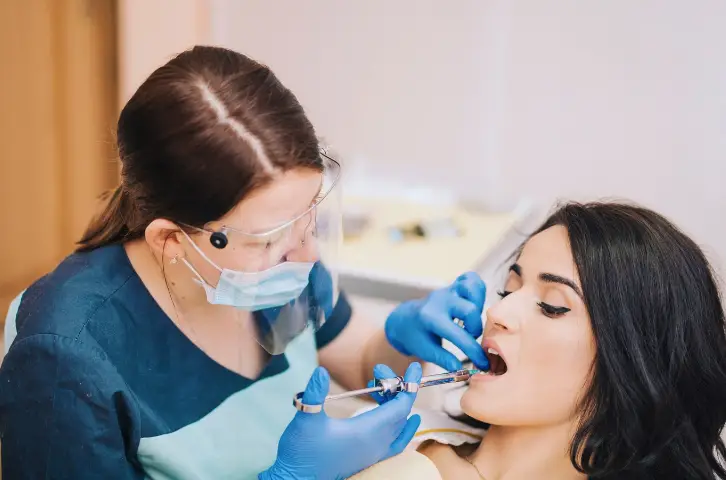Unlocking the Secrets of Painless Dental Extractions: What You Need to Know

Understanding Wisdom Teeth and Their Removal
Wisdom teeth, also known as third molars, are the last teeth to emerge in the mouth. They typically appear between the ages of 17 and 25. While some people never develop wisdom teeth or have no issues with them, many individuals experience complications that necessitate their removal.
Why Wisdom Teeth Often Need to Be Removed
- Impaction: Wisdom teeth may not have enough room to grow properly, leading to impaction.
- Crowding: They can cause other teeth to shift, affecting dental alignment.
- Infection: Partially erupted wisdom teeth are prone to infection and decay.
- Cysts or tumors: In rare cases, cysts or tumors can form around untreated wisdom teeth.
The Wisdom Teeth Removal Procedure
The process of removing wisdom teeth involves several steps:
- Consultation and X-rays
- Anesthesia administration
- Tooth extraction
- Stitching (if necessary)
- Recovery instructions
Types of Anesthesia Used
| Anesthesia Type | Description | Best For |
| Local | Numbs the immediate area | Simple extractions |
| Sedation | Relaxes the patient but keeps them conscious | Moderate anxiety |
| General | Puts the patient to sleep | Complex cases or severe anxiety |
Preparing for Your Wisdom Teeth Removal
To ensure a smooth procedure and recovery, follow these preparation tips:
- Arrange for transportation home after the surgery
- Fast for 8-12 hours before the procedure if undergoing general anesthesia
- Wear loose, comfortable clothing
- Remove jewelry and contact lenses
- Inform your dentist of any medications you’re taking
Recovery and Aftercare
Immediate Post-Surgery Care
- Bite down gently on gauze pads to control bleeding
- Apply ice packs to reduce swelling
- Take prescribed pain medications as directed
- Avoid smoking, drinking through straws, and vigorous rinsing for the first 24 hours
Long-Term Recovery
- Stick to soft foods for the first few days
- Gradually introduce solid foods as comfort allows
- Gently rinse with warm salt water after meals
- Continue good oral hygiene practices, being careful around the extraction sites
Potential Complications and How to Avoid Them
While wisdom teeth removal is a common procedure, it’s not without risks. Some potential complications include:
- Dry socket
- Infection
- Nerve damage
- Sinus issues
To minimize these risks:
- Follow all post-operative instructions carefully
- Attend follow-up appointments
- Contact your dentist if you experience severe pain, fever, or excessive bleeding
The Importance of Choosing the Right Dental Professional
Selecting an experienced and skilled dental professional is crucial for a successful wisdom teeth removal. When considering wisdom teeth removal Las Vegas residents and visitors alike should research thoroughly and choose a reputable practitioner with a track record of successful procedures.
Advances in Wisdom Teeth Removal Techniques
Recent years have seen significant advancements in wisdom teeth extraction methods:
- 3D imaging for precise planning
- Minimally invasive techniques
- Platelet-rich plasma therapy for faster healing
- Computer-guided surgery
These innovations have led to:
- Reduced surgical time
- Less post-operative pain and swelling
- Faster recovery periods
- Improved overall outcomes
Cost Considerations and Insurance Coverage
The cost of wisdom teeth removal can vary widely depending on factors such as:
- Number of teeth being removed
- Complexity of the extractions
- Type of anesthesia used
- Geographic location
Many dental insurance plans cover a portion of wisdom teeth removal costs, especially when deemed medically necessary. It’s essential to check with your insurance provider to understand your coverage and potential out-of-pocket expenses.
When to Consider Preventive Removal
Some dental professionals recommend preventive removal of wisdom teeth, even if they’re not currently causing problems. This approach may be beneficial for:
- Young adults with developing wisdom teeth
- Individuals with a family history of wisdom teeth issues
- Those with limited access to dental care in the future
Discuss the pros and cons of preventive removal with your dentist to determine if it’s the right choice for you.
Alternative Options to Extraction
In some cases, alternatives to wisdom teeth removal may be possible:
- Monitoring: Regular check-ups to watch for potential issues
- Coronectomy: Removing only the crown of the tooth, leaving the roots intact
- Orthodontic treatment: Creating space for wisdom teeth to emerge properly
These options are typically considered when extraction poses a high risk of complications or when wisdom teeth are not causing significant problems.
The Future of Wisdom Teeth Management
Ongoing research in dental science is exploring new ways to manage wisdom teeth:
- Stem cell therapy to regenerate dental tissue
- Gene therapy to prevent wisdom teeth formation
- Bioengineered tooth replacements
While these technologies are still in development, they hold promise for future generations in managing wisdom teeth issues.
Wrapping Up: Making an Informed Decision
Deciding whether to have your wisdom teeth removed is a personal choice that should be made in consultation with a dental professional. By understanding the procedure, potential risks, and benefits, you can make an informed decision about your oral health. Remember to choose a qualified practitioner, follow all pre- and post-operative instructions, and maintain good oral hygiene practices for the best possible outcome.
